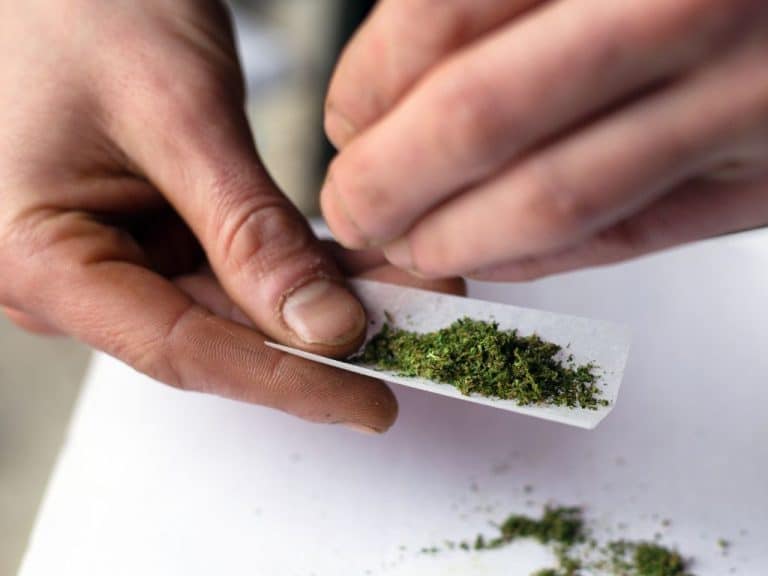Caught Drug Driving?
In Scotland, driving under the influence of illegal drugs is strictly prohibited, with severe penalties including a minimum one-year driving ban, hefty fines, and potential imprisonment. Our Scottish driving law Solicitors are here to help. They will guide you, explain your rights, and help achieve the best possible outcome.



Here’s how we can help
24/7 Availability
Our team is available around the clock to provide you with the support and advice you need, whenever you need it.
Proven Success
With a strong track record of successful defences in drug driving cases, we have the experience and knowledge to achieve the best possible outcomes for our clients.
Free Initial Consultation
Our friendly team are on hand for a free initial consultation to talk through your case.
Consequences of Drug Driving
Drug driving in Scotland refers to the act of operating a vehicle while under the influence of illegal drugs or certain prescription medications that impair your ability to drive safely. Scotland has a zero-tolerance policy for driving with illegal drugs in your system, and it is a criminal offence to drive if you are unfit due to drug use. Penalties for drug driving can include a minimum one-year driving ban, fines up to £5,000, imprisonment, and a criminal record.
Contact Us Now
Expert Defence for Drug Driving Charges
Our expert road traffic lawyers can help you develop a robust defence strategy tailored to your circumstances. They will examine the evidence, challenge any flaws in the prosecution’s case, and explore potential legal defences. Our expertise will be invaluable in identifying the most effective defence strategy for your situation. With the right advice and representation, you have more options than you may think.
Contact Us NowTailored Defence Strategies: To challenge prosecution and maximise your legal options.
Top-Rated: Serving Edinburgh, Glasgow, and the West of Scotland. Rated 4.9/5 stars on ReviewSolicitors.
Drug Driving Specialists: Expert legal representation when you need it most. Our solicitors specialise in drug driving cases, ensuring you receive the highest quality defence tailored to your unique situation.
What do I do if I am charged with driving under the influence of drugs?
If you find yourself in the situation of being caught drug driving in Scotland, it’s crucial to seek expert legal representation as soon as possible. We will provide you with expert guidance and help you understand your rights and options. A skilled lawyer can make a significant difference in getting you the best possible outcome.
Scullion LAW’s specialist team is ready to help you, and there are several avenues of defence which can be explored.
Our road traffic Solicitors will examine the evidence, looking at the procedures and methods used. We will challenge any flaws in the prosecution’s case and explore potential legal defences. With the right advice and representation, you have more options than you may think.
If you have any questions or need specialised road traffic advice, contact us today.
Contact Us NowFrequently Asked Questions
Discover the legal consequences and essential information about cannabis drug driving in Scotland.
Driving convictions involving cannabis (tetrahydrocannabinol – THC) will trigger a licence suspension of a minimum of 12 months. Beyond losing privileges, expect large fines up to £5000 plus potential 6-month imprisonment. Permanent criminal records also follow that you will be required to disclose on any PVG or enhanced disclosure application. If facing charges, seek expert legal guidance immediately and halt any cannabis intake. The law is very hard on the use of cannabis around vehicles and unfortunately, it is not a defence that you require your licence for work.
Stay educated on the intricacies of cannabis driving laws and testing limitations. Assumed harmlessness carries grave outcomes when cars meet THC.
There is no fixed timeframe for how long tetrahydrocannabinol (THC), the active component in cannabis, remains detectable in driving tests. THC metabolites linger longer for some based on individual body chemistry, genetics, frequency of smoking, weed strength ingested, and testing method sensitivities. Regular smokers retain compounds longer, while occasional users process them faster. It varies from person to person.
In simple terms – there is no way to know whether you are below the prescribed limit other than to scientifically test yourself!
The roadside saliva test works differently to a urine or blood test. It is designed to be a presumptive test, and simply produces a pass or fail result. This can then be used to determine whether a more scientifically accurate test should be carried out. The presumptive roadside saliva test however, is likely to catch out cannabis smokers up to 24 hours after use, well after the effects have worn off.
For blood tests, scientific studies have shown THC will reach a peak concentration within 3 – 10 minutes after the onset of smoking. A single joint containing on average of about 25 milligrams of THC will cause a peak concentration of anywhere between 84.3 – 162 micrograms (the legal limit being 2 micrograms!) A single joint will cause an average peak concentration of 120 micrograms within 8 minutes. This will then drop rapidly over the following 4 – 6 hours, with a blood concentration of 2 micrograms expected to be reached within 7 – 12 hours. If the user is a regular smoker, then this time will increase exponentially depending on the quantity and the strength of the cannabis consumed. What is important to note that in some tests THC has been found in the blood of users up to 30 days after consumption!
From the 21 October 2019, new drug driving laws came into force in Scotland, which effectively introduced a “zero tolerance” approach to drug driving.
The current legal limit for THC, the active ingredient in cannabis, is incredibly low. It’s set at 2 micrograms per litre of blood, and to put that into perspective, a recent study showed that a single ‘puff’ on a cannabis joint produced an average immediate blood THC concentration of 18 micrograms (9 times the legal limit). The legal limit for Heroin is 5 micrograms per litre of blood, Cocaine is 10 micrograms. It, therefore, shows you just how incredibly low the prescribed limit for cannabis is. So, it’s crucial to understand the severity of the prescribed limit for cannabis.
There are many different variables that impact on the rate that marijuana is both metabolized and excreted by the body, which make it impossible to work out with any certainly when an individual would be able to drive legally.
Individual variables that play a role in how long marijuana stays in your system and can be detected include:
- Body fat: People with more body fat will retain THC for longer.
- Method and frequency of usage: Infrequent users clear THC faster than chronic users.
- Strength of cannabis and method of ingestion: The effects and rate of metabolism are quite different if cannabis is, for example, eaten, giving a much slower onset and much longer effect.
- Genetics: Fast metabolizers will excrete THC rapidly.
- General health: Many medical conditions impact on how your body retains, stores, and metabolizes marijuana. A major problem for chronic cannabis users is storage in fat – the release of THC (at low concentration) from fat can take place over weeks or months and may be detected by oral swab for this length of time.
- Type of detection test used (blood, hair, saliva, or urine)
Road Traffic Lawyers You Can Trust


